Description
A fine example of this very rare, late Victorian Card game by John Jaques & Sons, 102 Hatton Garden, London. The game is complete and in excellent condition as shown. Amazing for a game which is now 120 years old!
This is believed to be the 1st edition of the game. It containing two full decks of 52 letter cards, which show little sign of use. The game also includes original bone counters, an instruction booklet and blank score sheets. The original box is also in very good order.
Please refer to all the photos as these form an integral part of the item description.
Description of the game from boardgamegeek site:
Rare word game from around the turn of the 20th century. Devised at a “Famous London Literary Club”, it was probably a new idea over 100 years ago.
52 cards all feature letters, each with a value that relates to the rarity of the letter in the English language (For example, an E would be 4, a Q would be 1, and so on). This value is important because if a player goes out whilst you still hold cards, then you give him the score of you unused cards – i.e. you are not penalised much for holding ‘difficult’ letters but you are if you hold common letters.
The game mechanic is simple. In a turn a player may lay as many cards as he wants but he must always have in mind a genuine word that could be spelt out eventually. For example, you might lay an L. The next player lays a T after the L (he is thinking of SALT). The next player might lay an I and an M after the T (he is thinking of ULTIMATE) and so on, until a player is challenged that there can be no such word with that array of letters (By the way, the letters must stay in the order they are laid, there is no rearranging letters). If challenged, a player must prove that he was thinking of a word, and if proven true, he receives payment (counters) from the others. If he was bluffing, he pays out counters to the person who challenged him.
When the game time is finished, the one with the most counters, wins.
By the way, in 1900 or so, they must have been aware of Analysis Paralysis because there is a fixed rule ‘If you take longer than 30 seconds to play or pass, you forfeit your turn and must draw an extra card into your hand’.
And another oddity, how often are you told to enjoy your game – in Latin? The phrase Experientia Docet!, is used at the end of the rules




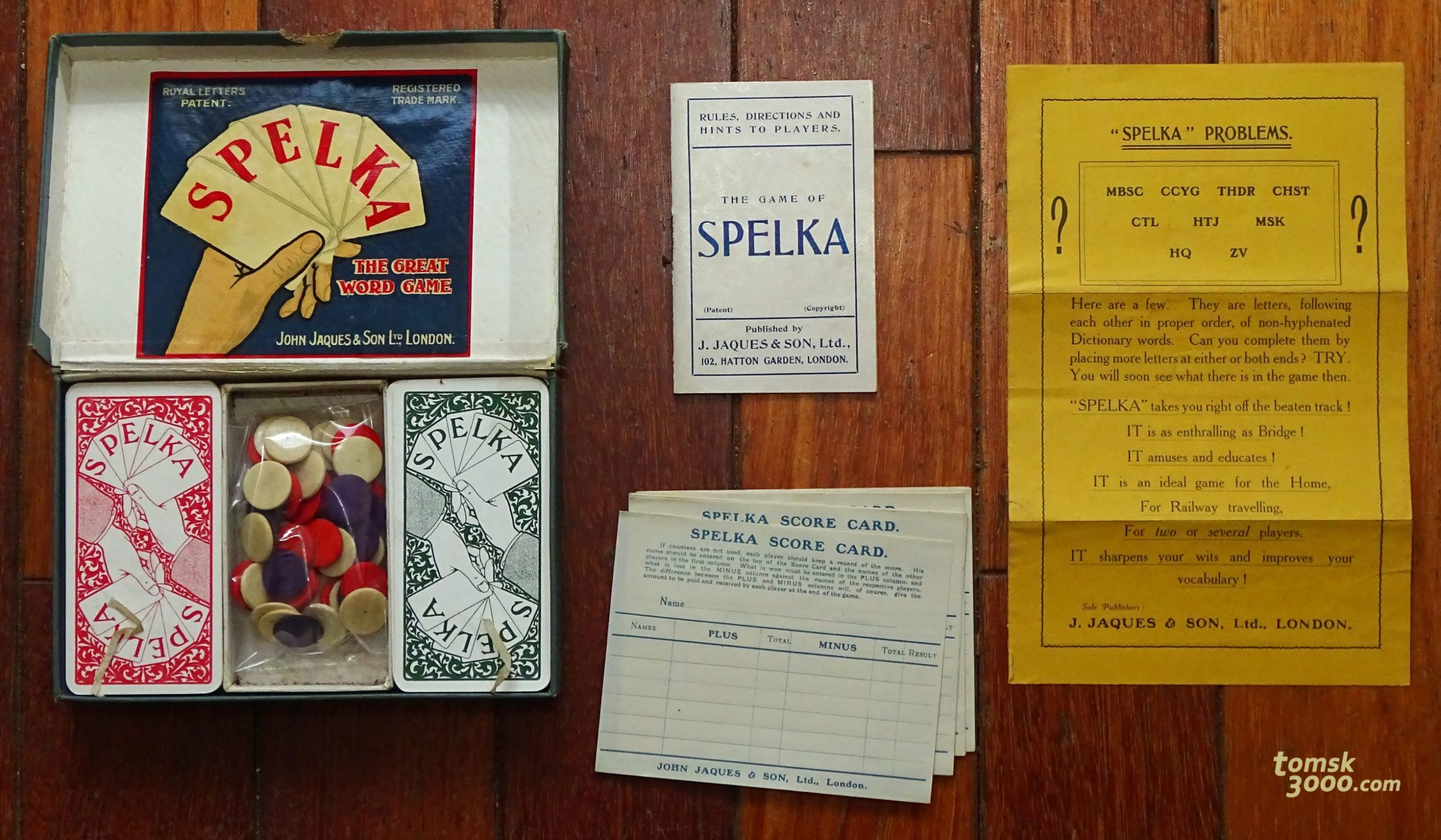

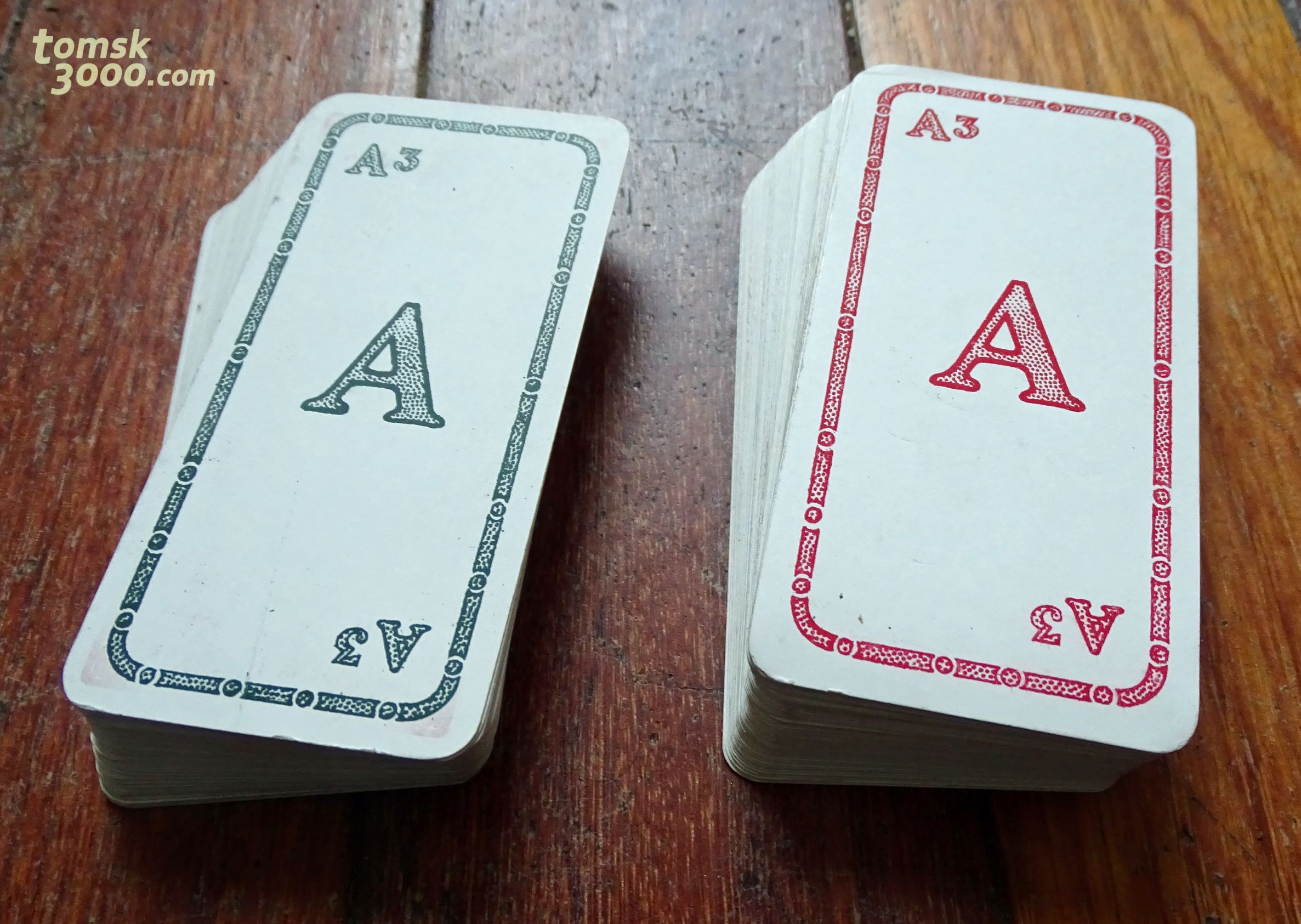
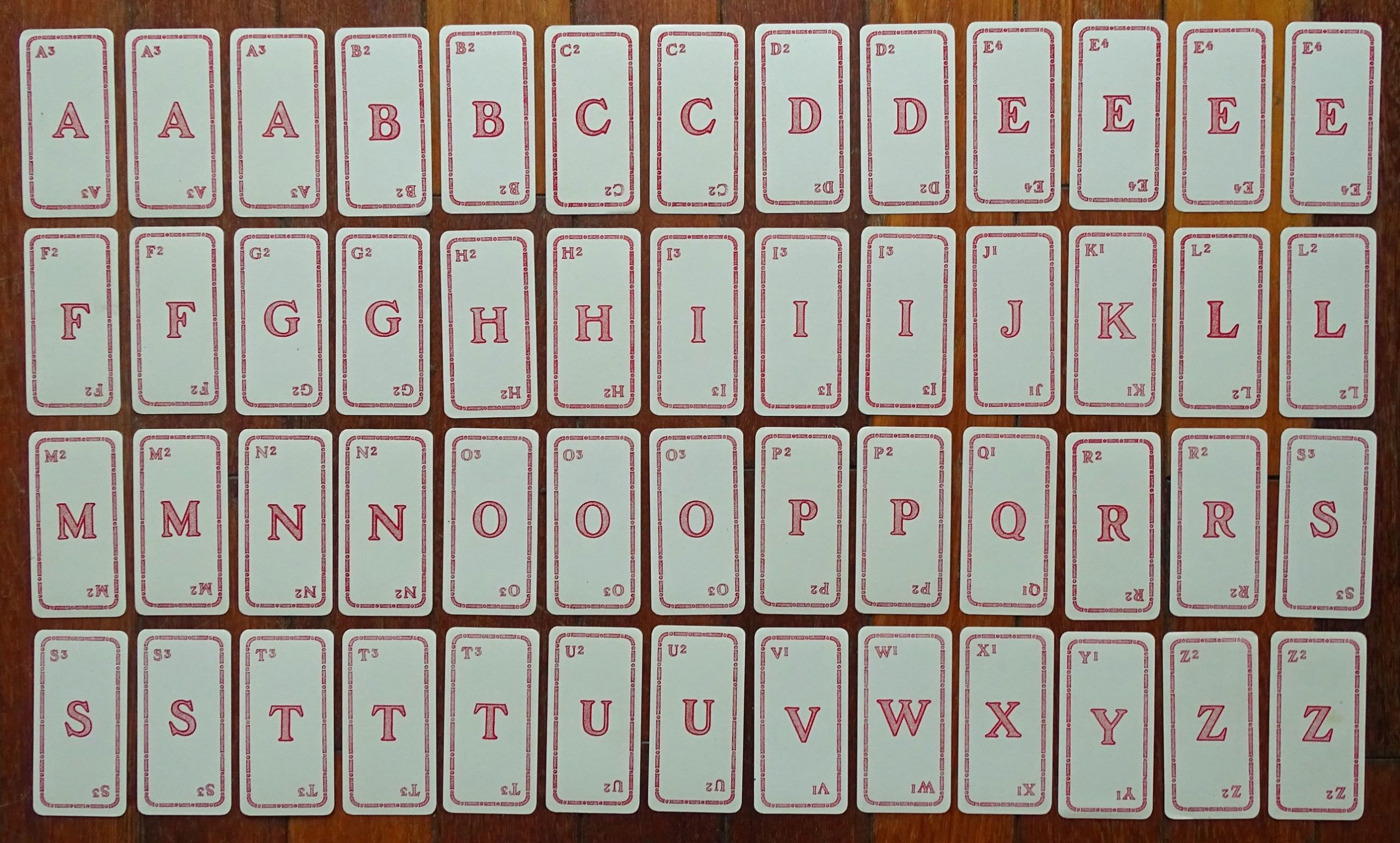
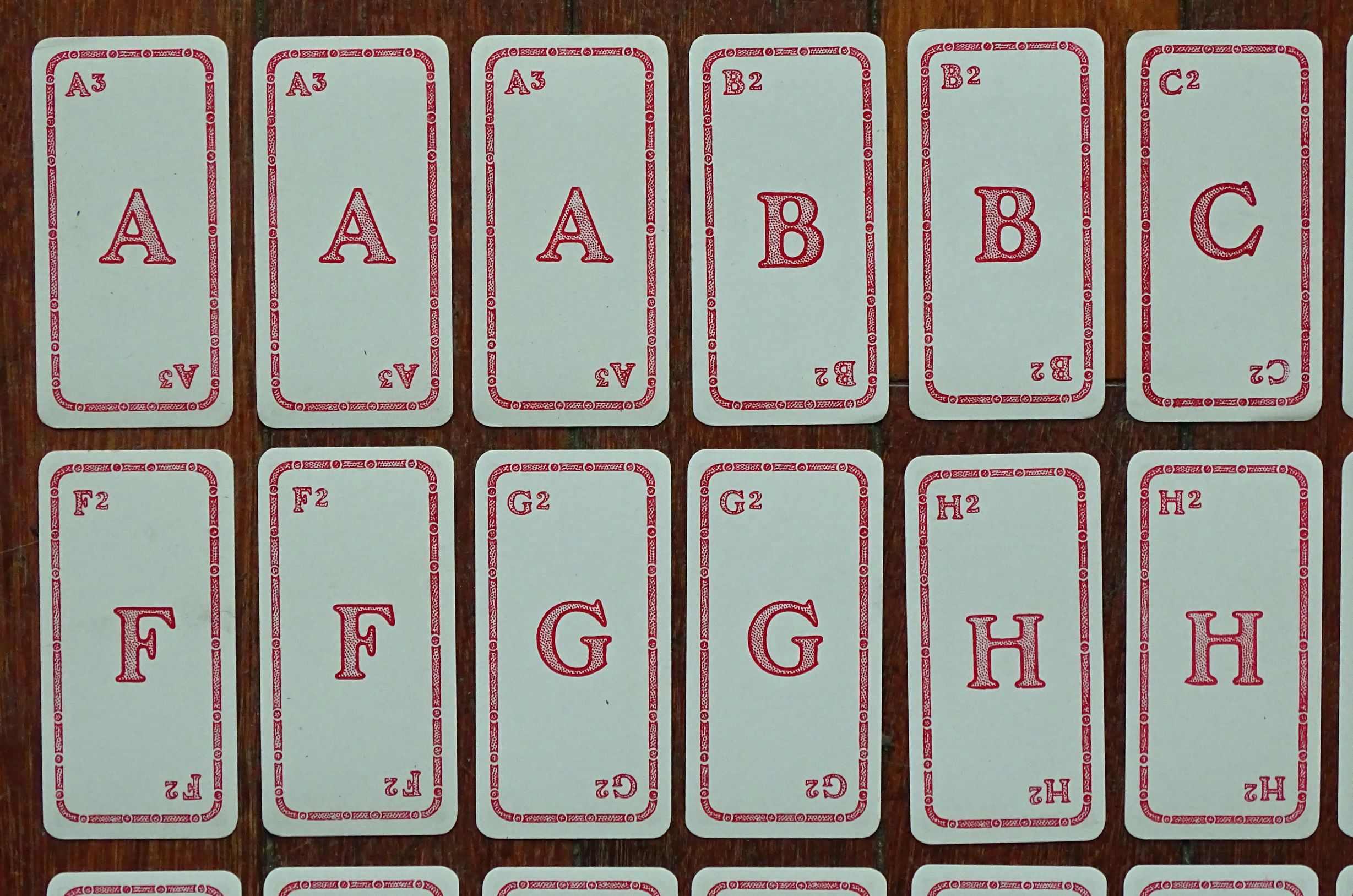
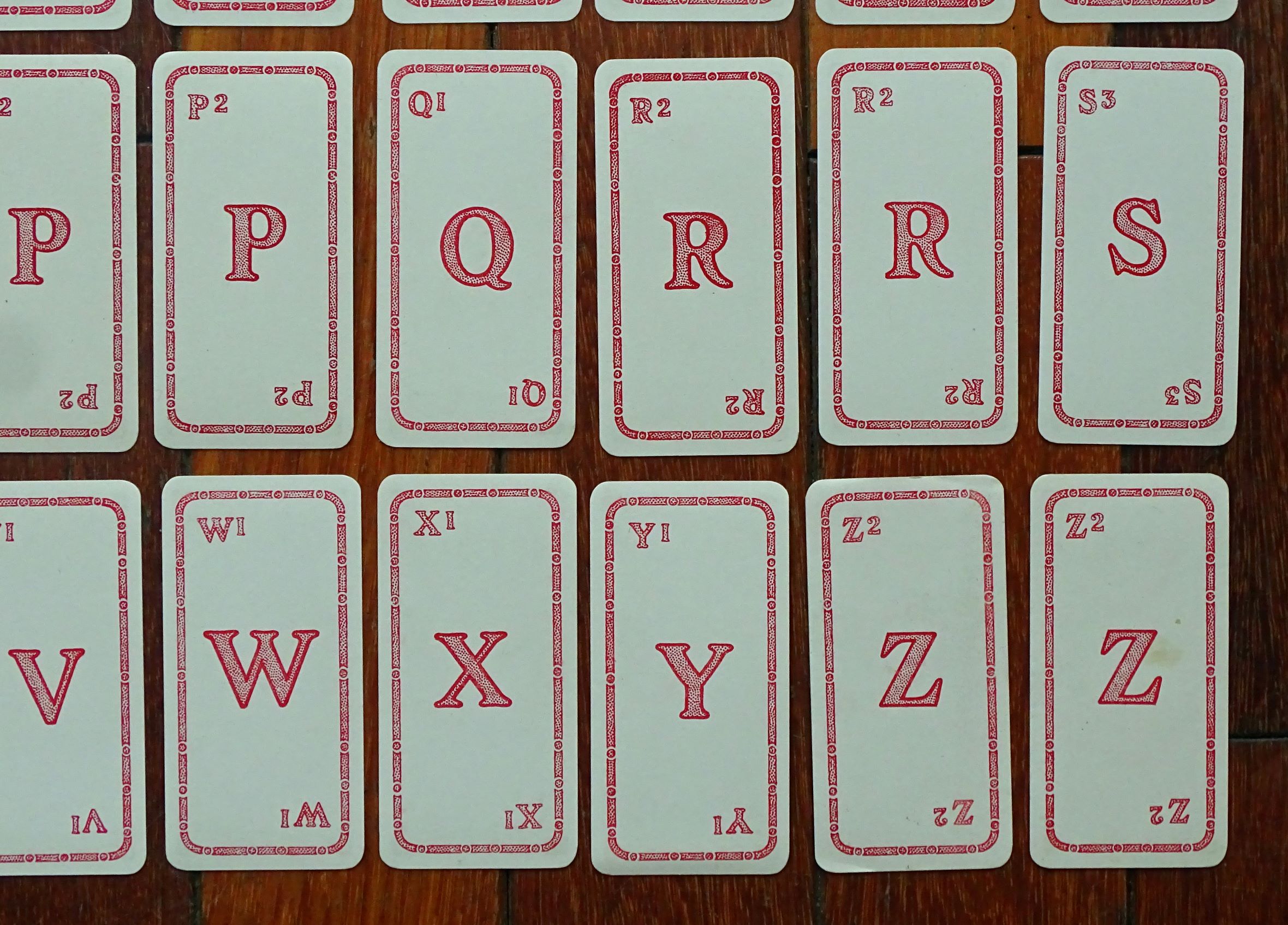


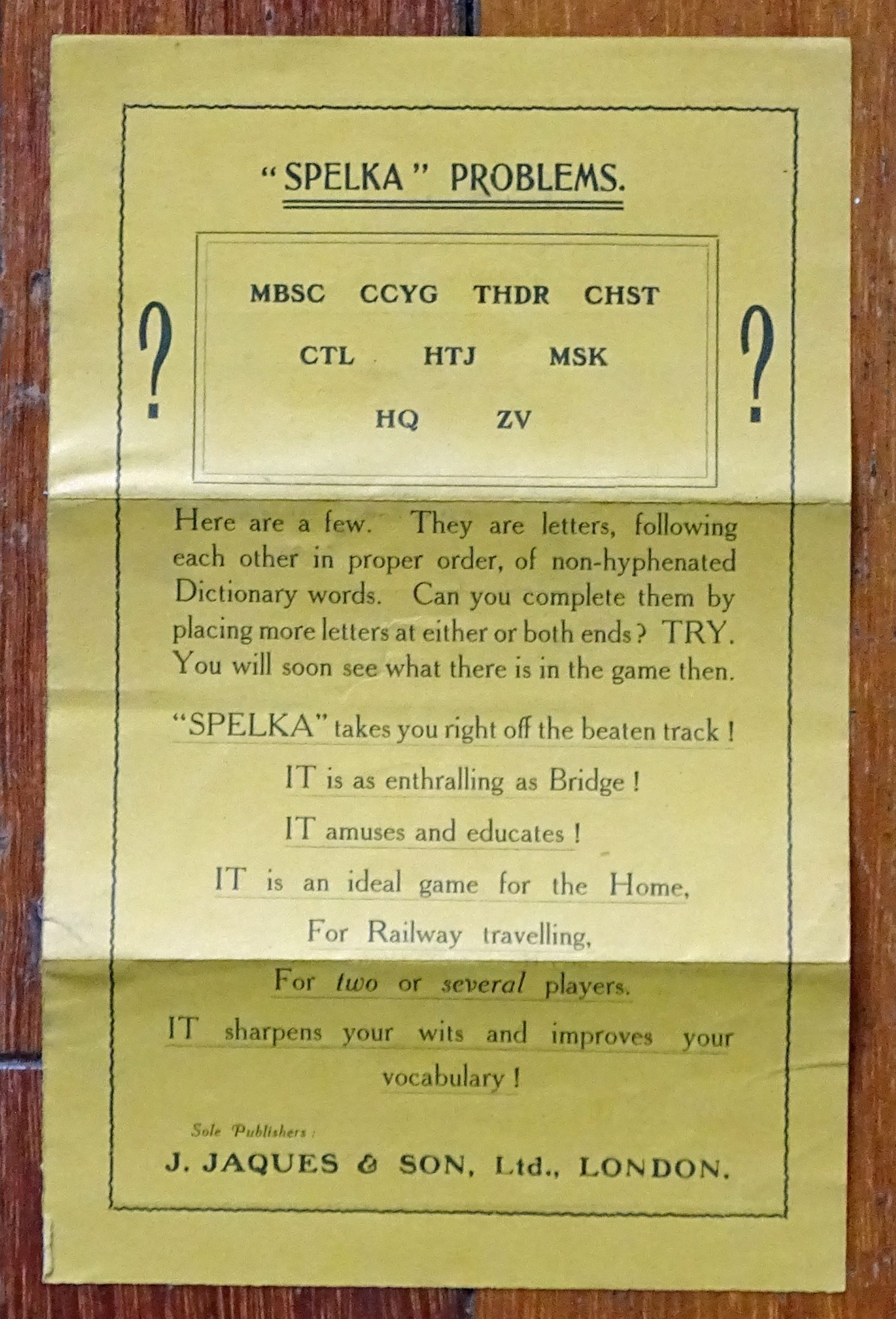
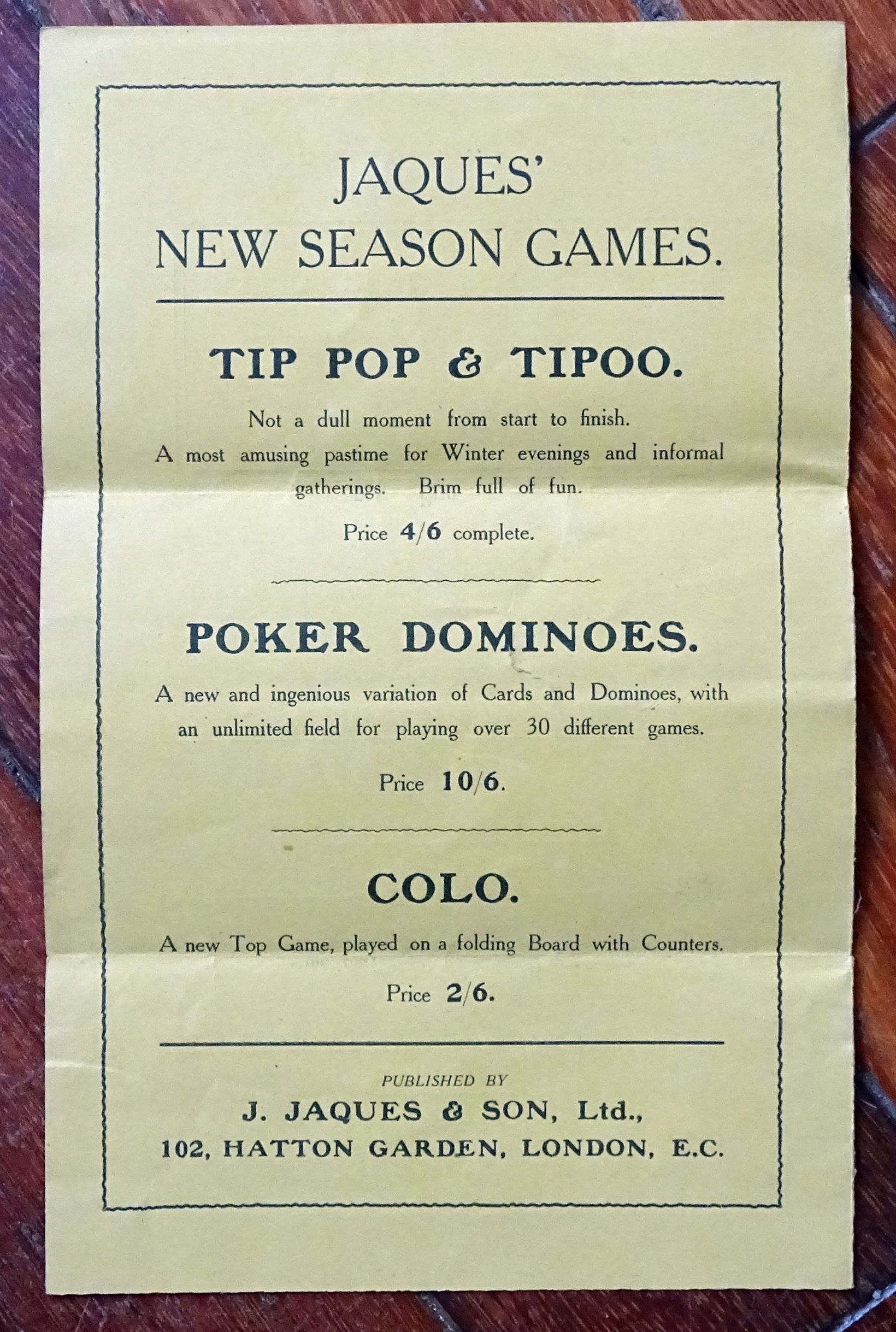
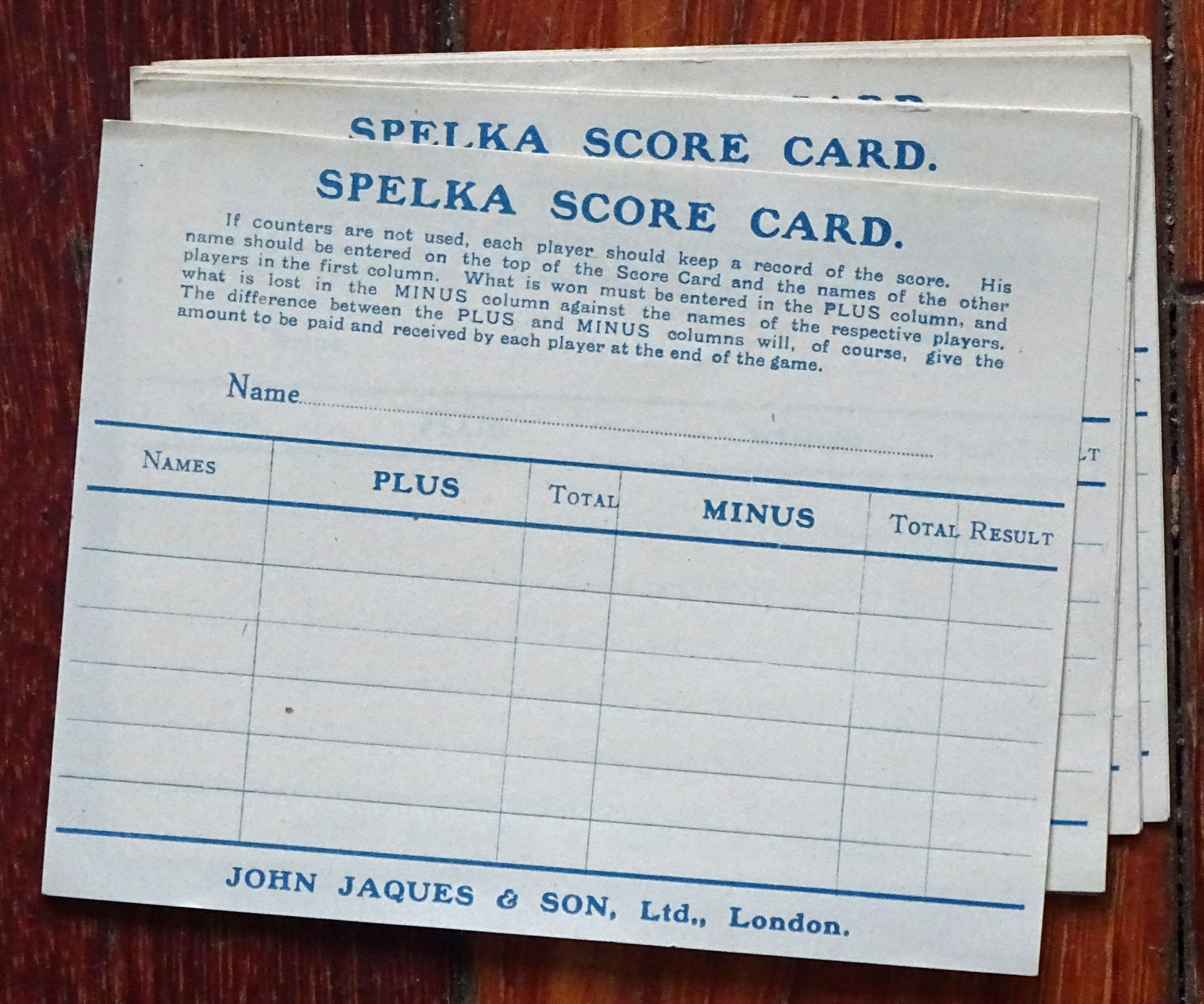

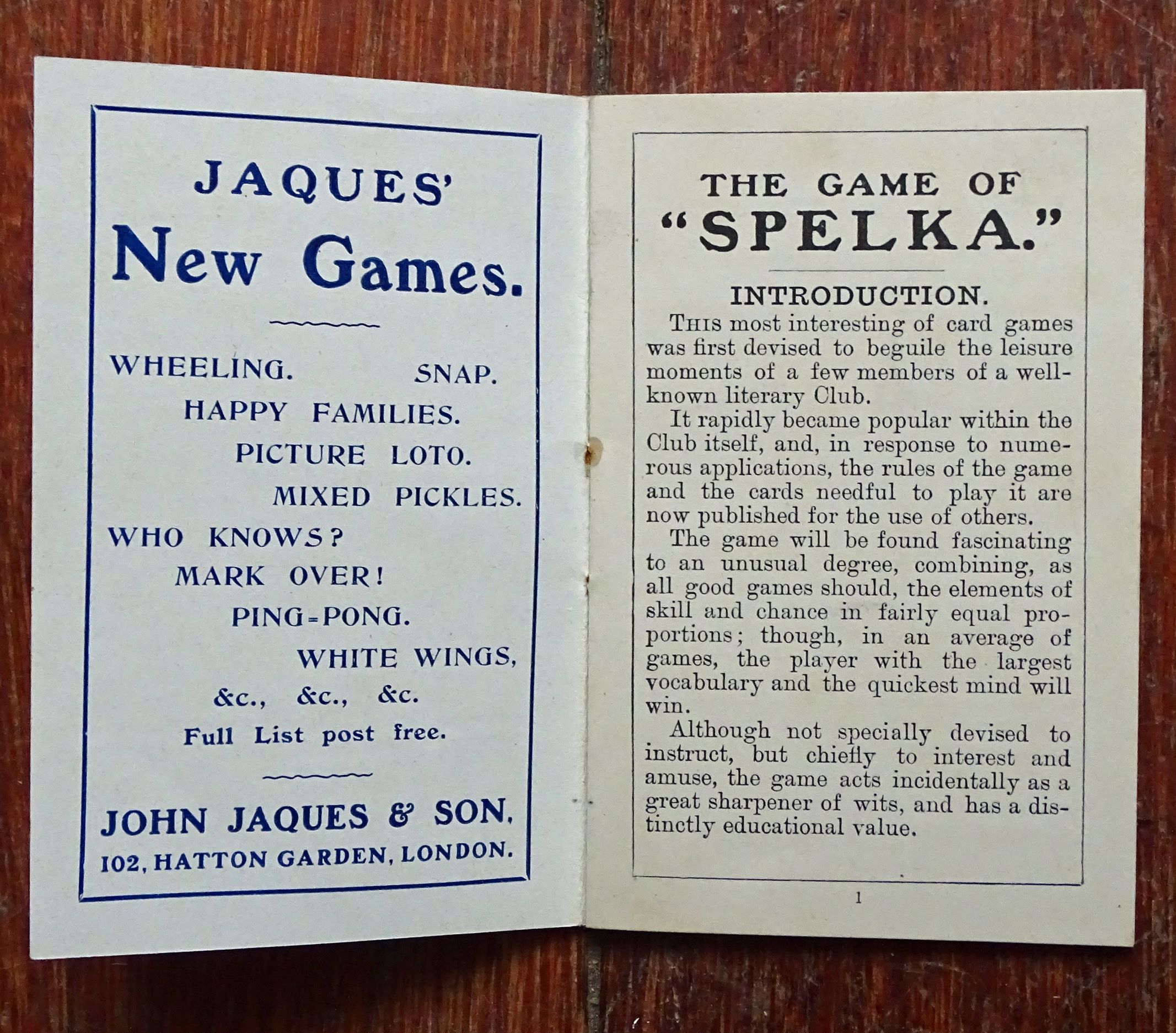
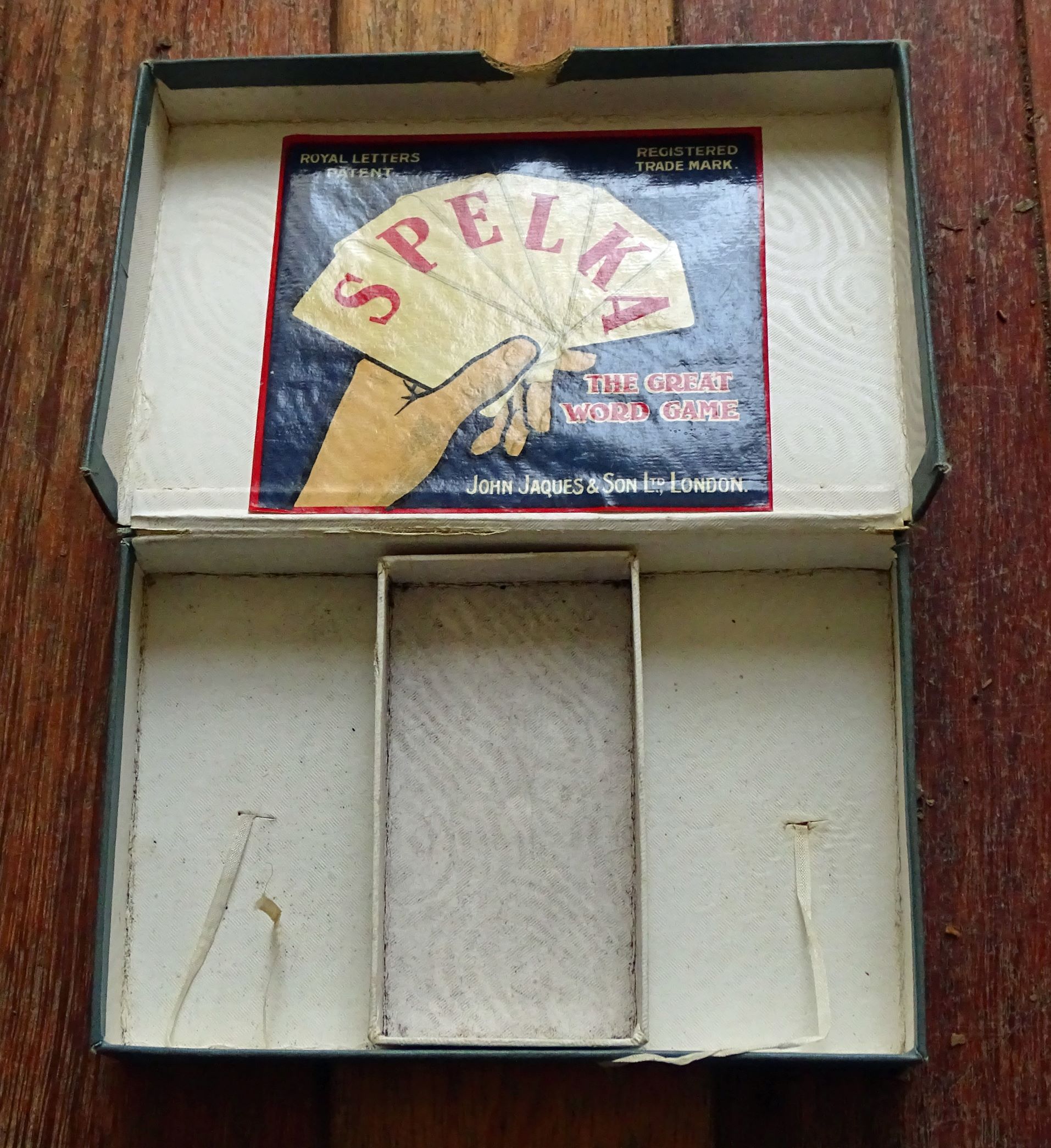

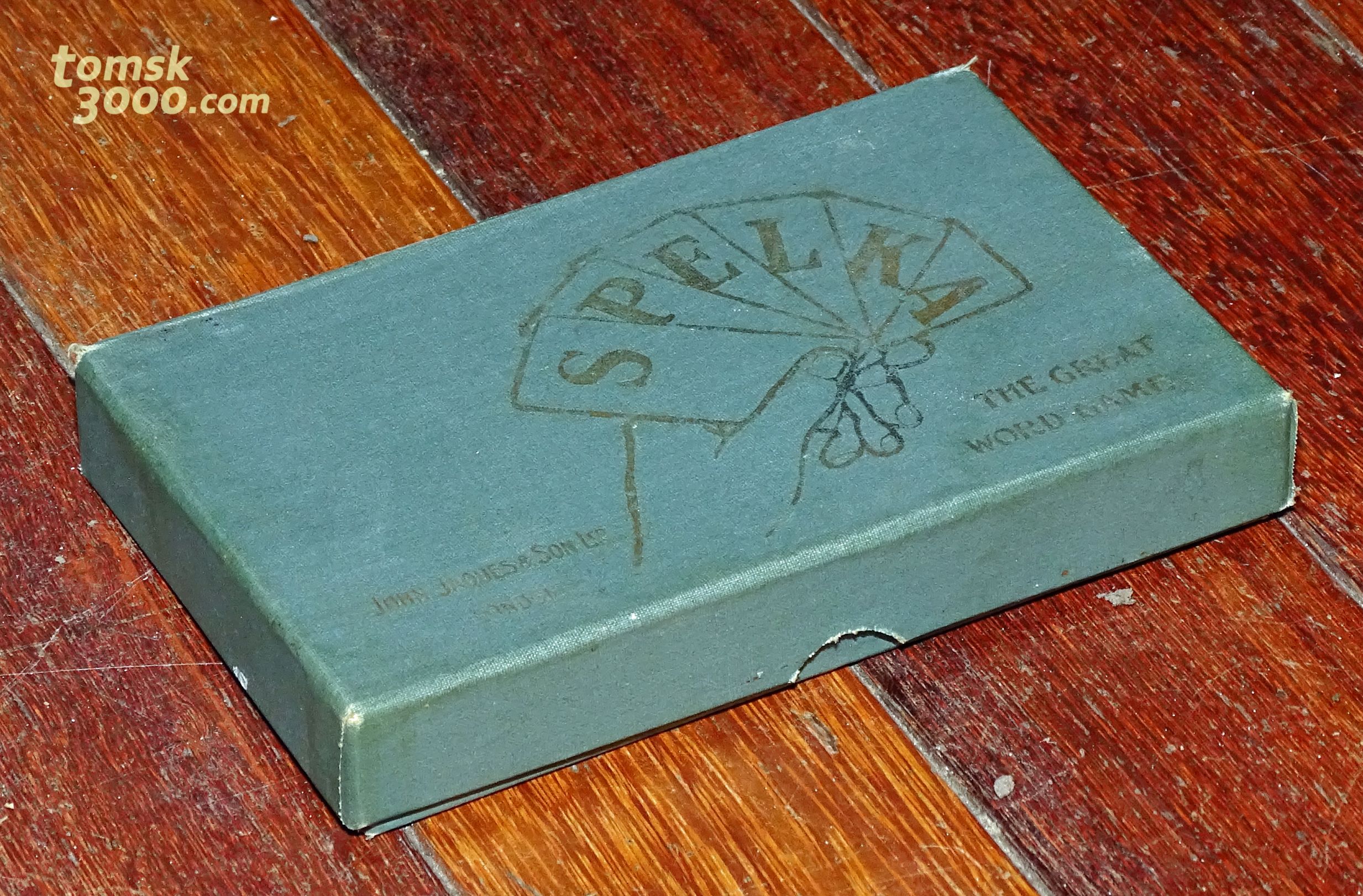
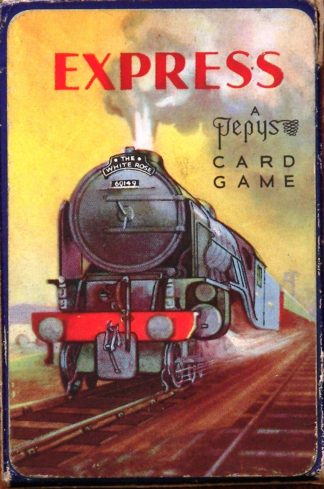

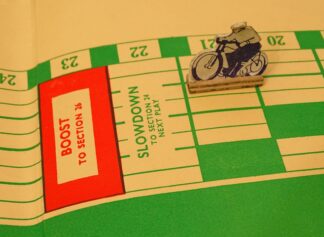
Reviews
There are no reviews yet.